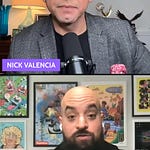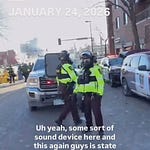Charlie Kirk’s assassination is not a victory — it’s a warning. His death underscores how words and politics built on contempt can feed a culture where outrage and firearms collide. The tragedy is not only his, but ours.
By Nick Valencia | September 12, 2025
TORONTO, CANADA— The assassination of Charlie Kirk is not something to celebrate. Murder is wrong — full stop. It is a tragedy for his wife and for his two young children, who now face the future without a husband and father. That human cost cannot be ignored.
But neither can the context. Kirk’s death did not come as a shock to many. For years, he thrived on a politics that treated cruelty as courage. He told audiences that gun deaths were the unfortunate price of the Second Amendment. He mocked immigrants, LGBTQ+ people, and the unhoused, framing division as conviction. He turned contempt into a business model, one that made him wealthy and elevated him into one of the most visible figures on the right.
American universities should be places where convictions are tested, where young people engage with perspectives beyond their own. Kirk marketed his appearances on campuses as debates, but he rarely arrived with an openness to be challenged. His role was not to listen but to dominate, to declare that he already had the answers. What he offered was not dialogue but performance — and it built him an empire.
None of this makes his killing justified. Political violence corrodes democracy, no matter who the target is. But it would be dishonest to treat his death as an inexplicable tragedy. Words matter. Actions matter. Kirk’s career was built on both — on rhetoric that demonized others and on political theater that rewarded division.
The climate he helped foster was one in which outrage became currency and hostility became normalized. That climate is the real warning.
The same First Amendment that protects my work as a journalist also gave Kirk the freedom to say what he said, and to thrive by saying it. That is the paradox of American democracy: its protections extend to those who use them to sharpen division. But freedom of speech does not shield anyone — not journalists, not activists, not politicians — from the consequences of a culture in which anger and firepower collide.
Charlie Kirk’s death should not be read as vindication. It should be understood as a warning: that when contempt becomes currency, and when guns remain within easy reach, violence is not a question of if but when.











